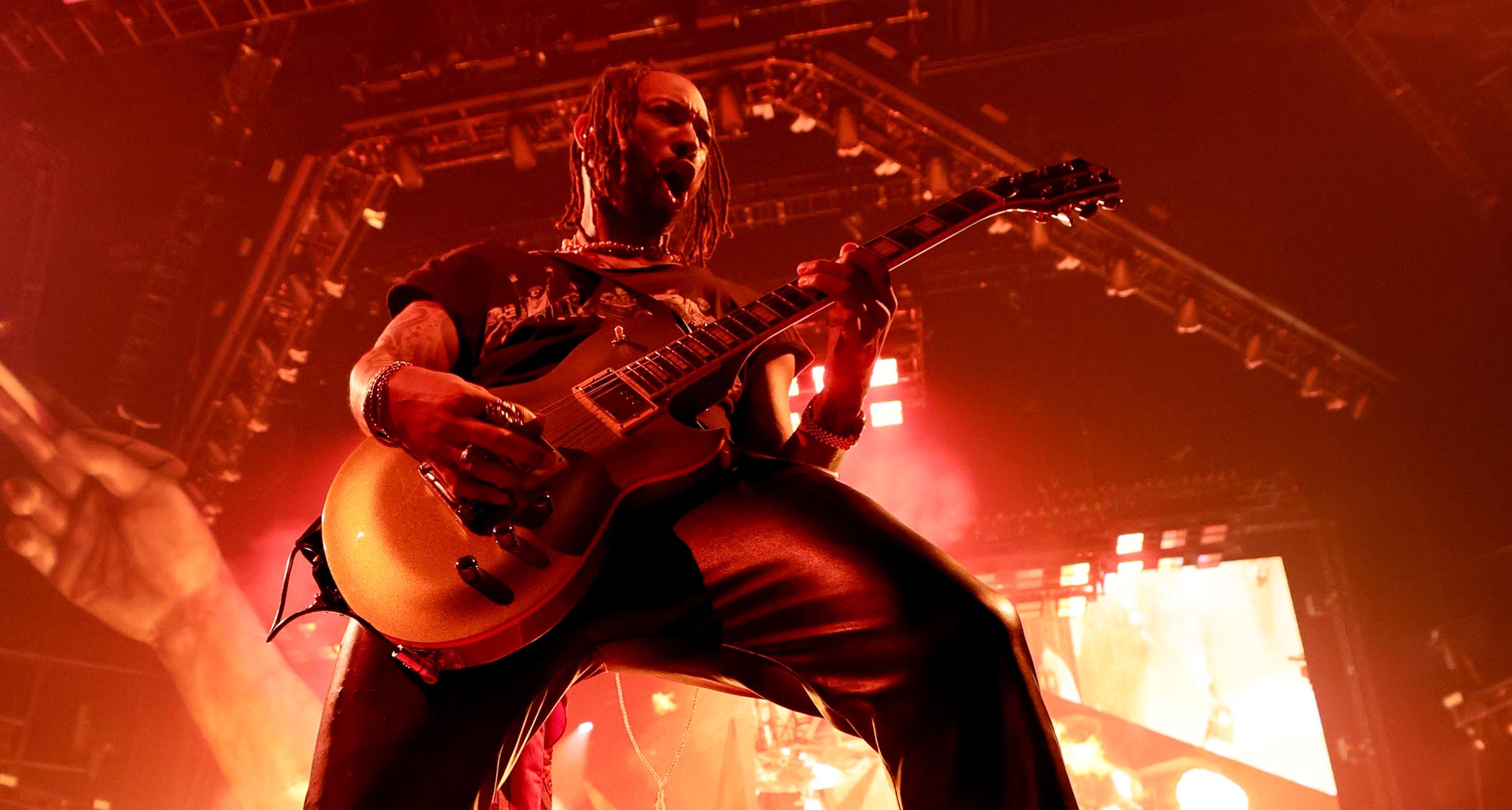Leprous guitarist Tor Oddmund Suhrke on his prog fanbase’s insatiable appetite for odd time signatures and going from massage table to festival stage
The Norwegian prog frontiersmen's new album, Aphelion, is a study in big musical ideas, articulated with restraint, with crowdsourced input as to where they take its finale

All the latest guitar news, interviews, lessons, reviews, deals and more, direct to your inbox!
You are now subscribed
Your newsletter sign-up was successful
Leprous guitarist Tor Oddmund Suhrke makes magic with his hands. This much is clear through over 20 dynamic years with the Norwegian prog outfit – from the metallic riff-play of their earliest efforts, to Suhrke’s gracefully low-gain approach on 2021’s Aphelion.
Up until this summer, he’d also been doubling as a professional physiotherapist ably kneading out the aches of a steady clientele – some of which are within Leprous’ ranks.
“I feel like every tour I’m on, suddenly I’m massaging someone’s ass,” Suhrke says with a laugh, of relieving his bandmates’ lower back pain. Surprisingly, Suhrke’s role as a physiotherapist hadn’t guided him toward a discipline of wrist-maintaining pre-show exercises.
“You might think the opposite, like, ‘Oh yeah, I’m very careful about my routines,’ but I’ve realized – at least to me – it doesn’t really make that big of a difference.”
I feel like every tour I’m on, suddenly I’m massaging someone’s ass
That’s not to say Suhrke’s playing on Aphelion is cavalier. He and co-guitarist Robin Ognedal show sublime restraint, carefully considering how they’ll poke through a lush bed of synths and orchestral strings with supple, supportive chord work (Running Low).
Elsewhere they’re more purposely profound, whether it’s Ognedal surging through soul-stirring slide work (All the Moments) or Suhrke riffing out percussive, eight-string melancholia (The Shadow Side).
Since 2017’s Malina, Suhrke says, Leprous have become confidently spontaneous in the studio, this perhaps best exemplified by epic Aphelion finale Nighttime Disguise. That song was ultimately shaped by fans during an interactive live stream, wherein the group asked people to vote on a series of songwriting parameters.
All the latest guitar news, interviews, lessons, reviews, deals and more, direct to your inbox!
It became a widescope look at the world of Leprous involving multiple key changes, time shifts, five-string bass tapping sections, and a brief return to fiercely screamed vocals. Through it all, the fans demanded Leprous turn everything up to 11.
“I would say our fans [have the] Yngwie Malmsteen mentality of ‘more is more.’ Whenever we asked things like, ‘Which time signature should we do: 4/4, 7/8, 15/8 or all of the above,’ it was almost always ‘all of the above.’”
Leprous are also pleasing the masses outside of the studio. Last June, they performed their biggest show to date – at France’s iconic Hellfest. Suhrke recalls explaining the feat to co-workers during one of his final physio shifts, before committing to Leprous full time: “It’s been such a slow build from the bottom, learning how to play with my friends and never giving up. When you’re actually playing the main stage at one of the biggest festivals in Europe, it’s a really intense moment.”
- Aphelion is out now via Inside Out.
Gregory Adams is a Vancouver-based arts reporter. From metal legends to emerging pop icons to the best of the basement circuit, he’s interviewed musicians across countless genres for nearly two decades, most recently with Guitar World, Bass Player, Revolver, and more – as well as through his independent newsletter, Gut Feeling. This all still blows his mind. He’s a guitar player, generally bouncing hardcore riffs off his ’52 Tele reissue and a dinged-up SG.

